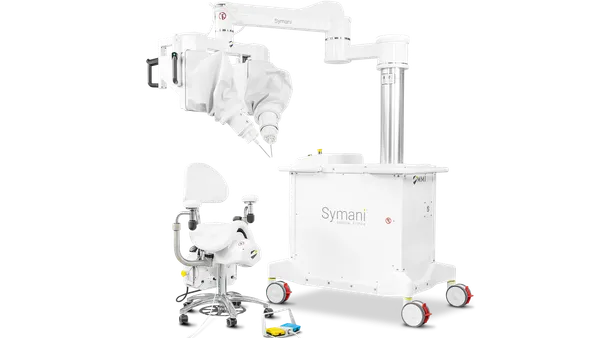Dive Brief:
- Penumbra’s RED reperfusion catheters achieved first-pass revascularization in 68.9% of ischemic stroke patients in a registry study.
- The initial analysis of the multicenter post-market evaluation found 97.0% of the 161 patients had successful revascularization after final angiogram through site-reported findings.
- A separate study found the device cleared clots in patients with tandem lesions, meeting the criteria for successful restoration of blood flow in 84% of the acute ischemic stroke subjects.
Dive Insight:
First-pass revascularization is associated with improved outcomes in stroke patients. A systematic review and meta-analysis published in December linked first-pass effect during a mechanical thrombectomy for ischemic stroke to more 90-day favorable outcomes and lower mortality. However, the effect was only seen in 40.3% of the 2,308 patients enrolled across the eight analyzed studies.
To assess the effect of its RED reperfusion catheters, Penumbra set up the INSIGHT Registry study. The study, which is aiming to enroll 400 subjects, will analyze clots from stroke and hematoma evacuations.
Penumbra shared initial data from the registry study at the 2022 World Federation of Interventional and Therapeutic Neuroradiology. Final modified treatment in cerebral ischaemia (mTICI) scores of at least 2b, the typical definition of successful reperfusion, were seen in 98.1% of patients with firm-red clots and in 100% of patients with other clot types. First-pass scores of 2b or higher were achieved in 68.9% of cases.
The company also presented results from its prospective, multicenter post-market study, COMPLETE. The analysis showed Penumbra’s catheters achieved mTICI scores of 2b or better in 89% of patients with anterior circulation tandem lesions with stenosis greater than 50%. Almost two-thirds, 64%, of patients had little to no disability, as defined by the Modified Rankin Scale, after 90 days.
A subgroup analysis of late window patients, defined in other studies as having witnessed onset of symptoms within 6 to 24 hours, found the catheters achieved successful revascularization in 83.2% of cases “with a 90-day good functional outcome rate of 55.4%.”
“Oftentimes, patients that presented late or have tandem lesions (15% of [mechanical thrombectomy] cases) are difficult to treat. However, the data showed the Penumbra System delivered good functional outcomes and low 90-day mortality rates for these patients, which compared favorably to other options,” said Osama Zaidat, M.D., the National Principal Investigator of the COMPLETE study.













